Iran Hardliner Says US Must Lift Sanctions And Pay Damages Before Talks
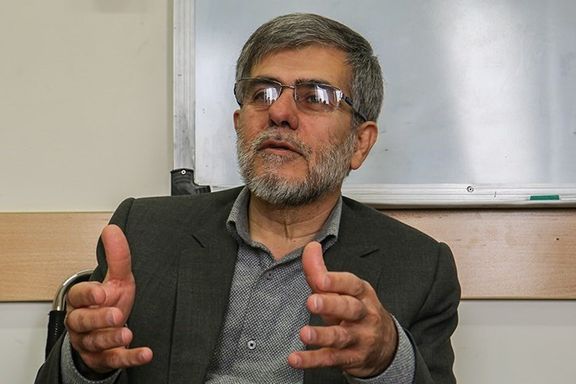
A hardline member of Iran’s parliament has said that the United States must discharge its nuclear deal commitments before it returns to multilateral talks.

A hardline member of Iran’s parliament has said that the United States must discharge its nuclear deal commitments before it returns to multilateral talks.
Fereydoun Abbasi, a former head of Iran’s Atomic Energy Organization was quoted by Tasnim news agency close to the Revolutionary Guard as saying that the current government’s approach is different from the former president Hassan Rouhani’s administration.
“We should not look at America as the sheriff in town. If they want to negotiate with Iran, they should be just one country alongside other members of JCPOA,” Abbasi maintained. If the US intends to rejoin the 2015 nuclear agreement, it should also pay damages to Iran for having imposed sanctions, Abbasi added.
Iran suspended nuclear negotiations with World Powers in June when President Ebrahim Raisi won the presidential vote. As Tehran has delayed its return to the talks, it has continued enriching uranium and has boosted its stockpile.
This week a new date was set to resume the talks on November 29. Abbasi said that Iran should use both “soft and hard power” in this round of talks. “Soft power is people’s support and hard power is our nuclear and deterrent military progress,” the lawmaker emphasized.

The US State Department spokesman on Thursday said that according to provisions of the 2015 nuclear deal (JCPOA) Iran can never acquire a nuclear weapon.
The statement met with skepticism among reporters who insisted that nothing in the JCPOA explicitly bans Iran from pursuing nuclear weapons after some of its provision expire during this decade.
In an answer to a question if the United States intends to extend some of the expiring limitation on Iran, Spokesman Ned Price responded that the agreement bans Iran from acquiring a nuclear weapon and that is a “permanent” provision.
“What the JCPOA put forward was a permanent, was a verifiable mechanism to ensure that Iran is never able or allowed to acquire a nuclear weapon,” Price added.
Price went on to say that the US is interested first to revive the JCPOA, that former president Donald Trump abandoned in 2018 and make sure that Iran “is once again constrained.” He continued that “we will then use that JCPOA…as a baseline to negotiate what we have – the – not only to lengthen and strengthen the provisions of the deal, but to put on the table and to discuss, in a productive and hopefully useful way, other issues of concern, issues that are of concern not only to the United States, but also of concern to our allies and partners in the region as well.”
In effect, Price reiterated the initial Biden Administration goal of first resurrecting the 2015 deal and then continue negotiating over a better agreement and also the twin issues of Iran’s ballistic missiles and its regional behavior.
Critics of this approach have said that once the JCPOA is revived, the United States has to lift the most effective and damaging sanctions, which would mean throwing the Islamic Republic a financial lifeline. Once Tehran can sell its oil and receive the money, it would have no incentive to make further concessions.
Whether the US has demanded assurances from Tehran during the Vienna talks this year to continue negotiations after sanctions are lifted, is not known. What the spokesman did emphasize on Thursday was restoring control over Iran’s nuclear program first, and then “hope from there we’ll be able to engage in constructive diplomacy vis-à-vis the other challenges that Iran poses to the United States, to our allies, to our partners in the region.”
Asked directly what leverage the United States would have over Iran without the most important sanctions in the future, Price avoided an answer, repeating that Washington is “focused on that first task.”
A reporter asked that a permanent ban on Iran acquiring nuclear weapons “is simply not” in the JCPOA text. Price responded that “What we are relying on are the international instruments that have been negotiated and that, until recent years, had been in place that had permanently and verifiably constrained Iran’s ability to acquire a nuclear weapon.”
The reporter kept insisting that the only permanent provision in JCPOA is Iran’s commitment to comply with the Non-Proliferation Treaty (NPT), which North Korea disregarded and produced nuclear weapons. Price continued to insist that the JCPOA gives the international community “permanent instruments” to monitor Iran’s nuclear activities.
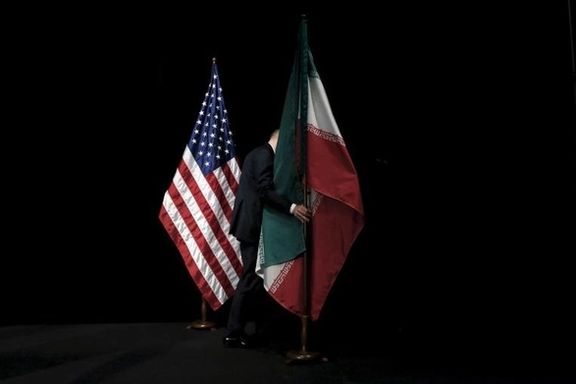
Iran has accumulated 25kg of uranium enriched to 60 percent and 210kg enriched to 20 percent, the spokesman of its nuclear agency told a Tehran rally Thursday.
Behruz Kamalvandi said that only nuclear weapons states are capable of this level of enrichment.
The last report from the International Atomic Energy Agency (IAEA), on September 7, put stocks at 10kg enriched to 60 percent and 84 kg enriched to 20 percent. The sharp increase may strengthen concern in the United States and Europe over advances in Iran’s nuclear program with talks on reviving Iran’s 2015 nuclear deal with world powers set to resume in Vienna November 29.
In Tehran, Iran Diplomacy, a website linked to the foreign ministry, published an interview with Mohsen Jalilvand in which the international relations analyst suggested that both Iran and the US were, in terms of an Iranian proverb, “hitting the table hard” in the belief this would strengthen their position in the negotiations.
Jalilvand mentioned US B1-B bombers flying recently over the Straits of Hormuz as well as Iran’s accusations that it thwarted in late October a US attempt to steal a shipment of Iranian oil, a charge Washington has denied.
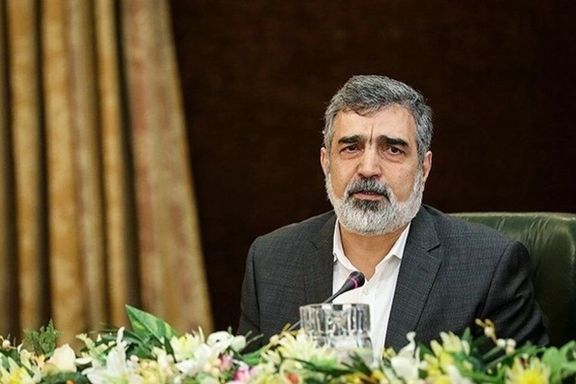
‘Weapons grade’
Iran has since 2019 been breaching nuclear limits set by the 2015 nuclear deal – the JCPOA, Joint Comprehensive Plan of Action – in a response to former US president Donald Trump leaving the agreement in 2018 and imposing ‘maximum pressure’ sanctions on Iran. The JCPOA restricts enrichment to 3.67 percent, well short of the 90 precent considered ‘weapons grade.’
Iran accelerated the program in early 2021 following the assassination of scientist Mohsen Fakhrizadeh and picked up further the pace after attacks on Iranian nuclear sites widely attributed to Israel.
In a report in September the Institute for Science and International Security suggestedIran could have enough material for a crude atomic weapon within a month, although it would need “more time to build a nuclear explosive devise or even longer to build a deliverable nuclear weapon.” The outgoing head of Israeli military intelligence, Major-General Tamir Hayman, said in September that Iran was two years away from the capacity to create a weapon.
But both the US and the European signatories of the JCPOA – France, Germany and the United Kingdom – have expressed concern that the expanded nuclear program is giving Tehran knowledge and experience that undermines the calculations underpinning the JCPOA. Iran, in turn, has said it will respect JCPOA limits once the US lifts ‘maximum pressure’ sanctions levied by Trump and continued by President Joe Biden.
‘Dialogue without delay’
France said Thursday it was holding to the possibility of acting against Iran at the November 18-19 meeting of the 35-nation board of the IAEA, whose head Rafael Mariano Grossi has called for an urgent meeting in Tehran to discuss agency access to the Karaj site, which makes centrifuges, used to enrich uranium,
European signatories of the 2015 deal apparently backed away in September from raising a resolution at the board criticising Iran after Tehran agreed with Grossi to extend a temporary arrangement giving the agency access beyond the minimum required under the Nuclear Non-Proliferation Treaty. Grossi has since argued this included access to Karaj, which Iran is restricting on grounds of a security investigation following a drone attack in June.
“Iran must resume dialogue and cooperation with the agency without delay to make progress on outstanding issues,” France’s foreign ministry spokeswoman Anne-Claire Legendre told reporters in a daily briefing. “Together with our partners, we remain very attentive to ensuring that Iran respects its commitments, and we remain in close consultation on the response to be provided on this.”
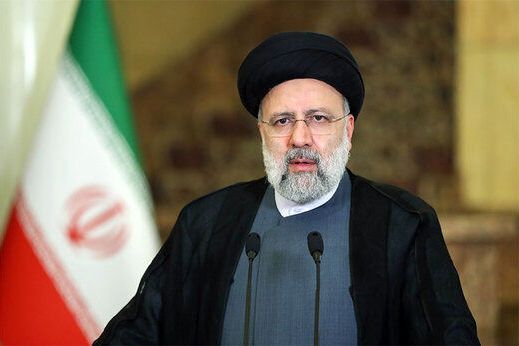
President Ebrahim Raisi referring to upcoming nuclear talks has said “Iran will not leave the negotiating table” but will also not accept excessive demands.
Raisi who was visiting Semnan Province on Thursday said Iran will pursue both the removal of US sanctions and efforts to neutralize them. Iran has always said it tries to circumvent sanctions the United States imposed in 2018 after withdrawing from the 2015 nuclear deal known as JCPOA.
Iran announced on Wednesday that after a four-month absence from the Vienna multilateral talks to revive the JCPOA, it will return to talks at the end of November. Raisi’s remarks were his first statement after the announcement of concrete date to resume the talks.
Iran’s hardline president repeated earlier statements by officials that Tehran wants “result oriented negotiations, and we will insist on the removal of sanctions”.
The Biden administration has said it is willing to lift the most important oil and banking sanctions if Iran also returns to its JCPOA obligations. Tehran has been enriching uranium to up to 60 percent, which has no civilian use.
Iran has delayed its return to the Vienna talks attempting to extract more concessions, but the US State Department said Wednesday that talks should resume exactly form where they were in June.
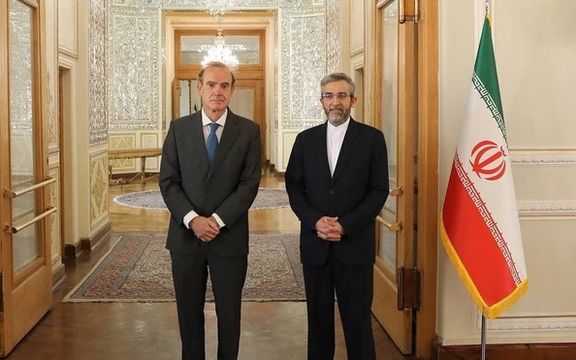
Iran's talks with world powers will resume on November 29, its top nuclear negotiator, Ali Bagheri Kani, said as concerns over Tehran's nuclear advances grow.
"In a phone call with @enriquemora, we agreed to start the negotiations aiming at removal of unlawful & inhumane sanctions on 29 November in Vienna," Bagheri Kani wrote in a tweet.
In April, Tehran and six powers started to discuss ways to salvage the nuclear pact, which has eroded since 2018, when then-President Donald Trump withdrew from it and reimposed sanctions on Iran, prompting Tehran to breach various limits on uranium enrichment set by the pact.
But negotiations have been on hold since the June election in Iran of hardline President Ebrahim Raisi, who is expected to take a tough approach when the talks resume in Vienna.
In Washington, US State Department spokesperson Ned Price said the United States hoped Tehran would return to the talks in good faith and ready to negotiate, saying Washington still believed it was possible to quickly reach and implement an understanding on a mutual return to compliance with the deal.
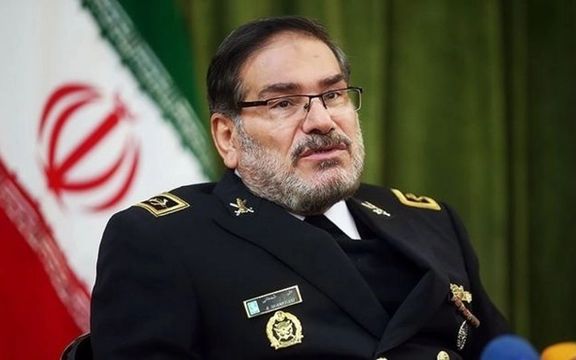
Iran’s national security chief has tweeted that “the powerless US president” is unable to give guarantees and without it the fate of the nuclear talks is clear.
In a series of tweets on Wednesday, Ali Shamkhani compared Iran’s current sanctions to conditions during the 1980s Iran-Iraq war when he said they were also calls for talks.
Iran’s top national security official added that during the war “Soldiers at the fronts were defending and now scientists will continue their legal nuclear activities”.
Iran has been enriching uranium this year to 20 and 60 percent purity, violating the terms of the Joint Comprehensive Plan of Action (JCPOA) and so far, not returning to multilateral nuclear talks that it left in June. Tehran says that since the United States and Europe have not honored their commitments under the JCPOA, it has a right to expand its nuclear program.
One of Iran’s demands is that President Joe Biden must provide guarantees that a future US president will not leave the agreement, as Donald Trump did in 2018. But if an agreement is not ratified by the US Senate as a treaty, no president can provide such a guarantee.
Shamkhani wrote that “the powerless US president is unable to provide a guarantee” and if the situation does not change “the fate of the nuclear talks is clear”.